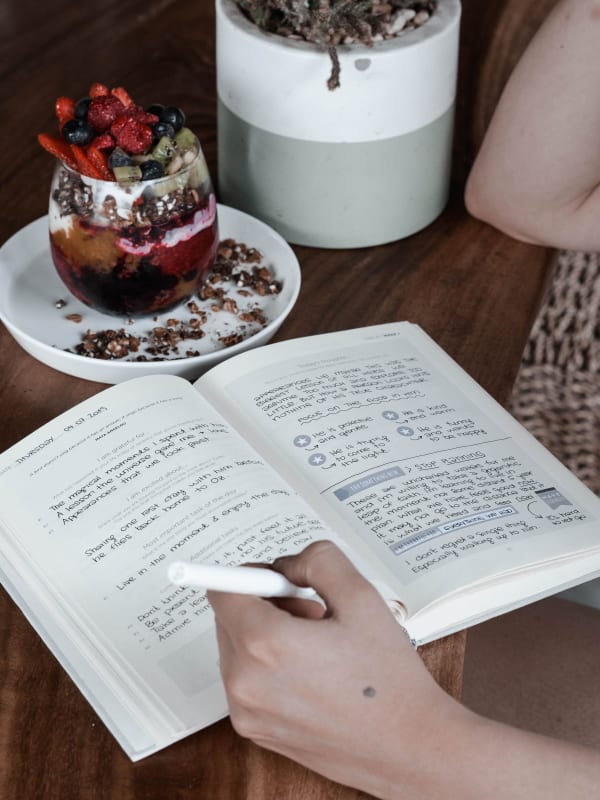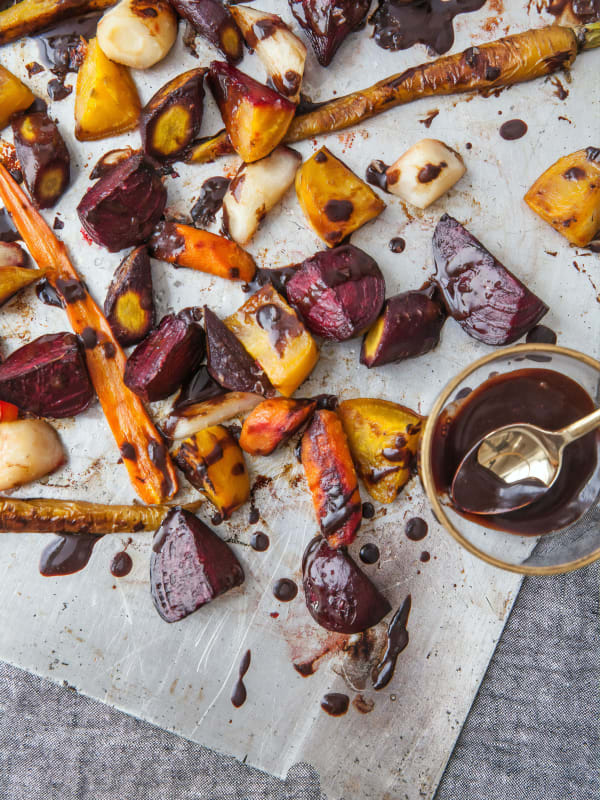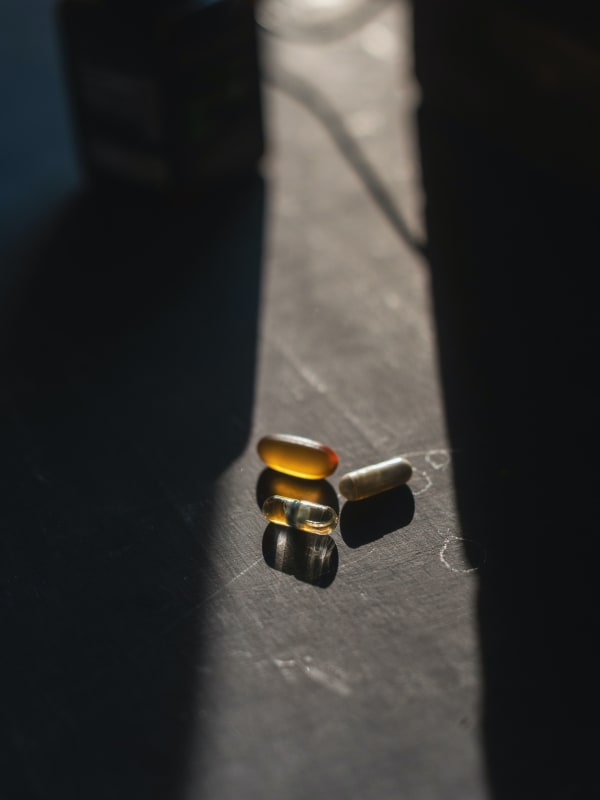Popular Conditions & Diets

<u>Living with IBD means learning that there is no single path to healing or remission. While diet matters, long-term management often comes from a combination of stress regulation, supportive routines, self-advocacy, and the willingness to adapt based on how your body responds in real time. Progress isn’t linear, but agency matters.</u>
Navigating life with IBD can be challenging, but it can also serve as an excellent opportunity to look within. I have realized that every situation is unique when comparing my story to others. Many factors can contribute to illnesses like Crohn's and Colitis, and there isn't one correct path to remission or healing. While diet is essential and should always be considered, we must discuss lifestyle and stress management techniques. Many IBD sufferers have found relief and even complete remission, but the diets or protocols they follow are never the same.
The one thing these individuals all have in common is a great attitude. They all decided to take matters into their own hands, adapt accordingly, and never again allow their illness to define them or how they live. I know what you're thinking - easier said than done, right? That's why I've created a quick list of ten tips I love to follow when experiencing a flare-up with my IBD.
Here are my top 10 tips for conquering an IBD flare-up.

Stress can be one of the most significant factors when trying to avoid aggravating your symptoms. A dysfunctional nervous system wreaks havoc on the gut (and the enteric nervous system that lives within it!). It’s time to become mindful of yourself. Meditate. Practice deep breathing. Take up yoga. Have an Epsom salt bath before bed. Do whatever it takes to enter a parasympathetic state for as long as possible. Make time for yourself and find a practice you can look forward to daily. Make sure you consume your meals in a stress-free environment. Distracted eating prevents proper digestion, which is already a significant problem for those with IBD. Put that phone down, turn off the news, eat in peace and always make sure you chew your food as much as you can (up to 30x if possible!).

It can be tough to express how you truly feel to even your closest friends and family. Talking or listening to others who also have IBD can go a long way. There are some fantastic YouTube videos from highly transparent people who discuss their situation and offer tons of tools and tips from their healing journey. There is an app called IBD Healthline that connects a large community of people living with IBD. There are constant discussions surrounding nutrition and lifestyle, medication, mental health and anything IBD-related. Find a community you can not only relate to but one that allows you to share your story or ask questions if you need to.
Writing down how you feel can be a much-needed emotional release, especially when things feel like they are out of your control. As mentioned earlier, I had forgotten how a terrible flare-up could affect my life. Writing things down, regardless of how you feel, can help you productively express yourself. It can also be a great reminder that things aren’t always going to feel this way. Looking back at your writing when you have recovered will show you just how far you have come.
There will be days where you don’t feel like moving much at all, and that’s okay. On days where you do have the energy, a 20-minute walk can dramatically affect how you feel mentally. It can also help alleviate the muscle stiffness and joint pain of IBD from medications and corticosteroids. It can be as simple as light stretching or trying a new yoga class. Don’t over-exert yourself and listen to your body. Just try to move whenever you can!

With nutrition, it will be a trial-and-error process for many people. For some, it’s as simple as eliminating processed foods, gluten or dairy from their diets. For others, they will have to consider a stricter approach. Some have switched to a plant-based diet and have seen their symptoms improve. The Mediterranean Diet has worked for others. There are also more rigorous elimination-style diets like AIP (Auto-Immune Protocol), SCD (Specific Carbohydrate Diet), and GAPS (Gut and Psychology Syndrome). Because of our bio-individuality, we need to find what works for us even though we have the same illness. Mindset is critical here. Be prepared to start something new and have a positive attitude that it can work for you.

Bone Broth: Contains collagen, glucosamine, gelatin, L-glutamine and plenty of amino acids that are great for repairing the gut. Consuming first thing in the morning on an empty stomach is best. Wait an hour before consuming your next meal if you can.
Fermented Foods: These are the best way to boost the “friendly” bacteria that promotes a healthy environment in the digestive tract. Sauerkraut, kimchi, kefir, and cultured yogurt contain beneficial bacteria (probiotics) that help maintain the gut microbiome ecosystem. A healthy microbiome is vital for the immune system, brain function, creating vitamins, maintaining weight and metabolism.
Omega 3 Fats (EPA/DHA): Flax, pumpkin, walnut, and fatty fish are all great sources of Omega 3 fats. These make prostaglandins in the body, which are essential for brain function, mood, improving immune function and reducing inflammation.
Coconut: Fantastic source of medium-chain triglycerides (MCTs), fats that are easily absorbed and used as an energy source. Coconuts have anti-viral and anti-bacterial properties and may help reduce inflammation as well.

Gluten: Contains the peptide gliadin, a known intestinal irritant, allergy producer and the leading cause of intestinal permeability (leaky gut).
Dairy: Most people are intolerant to dairy and lose the enzyme to digest it very young. It can easily trigger inflammatory reactions, especially gastrointestinal issues.
Processed foods: Fried, processed foods and processed sugars can cause many people discomfort because of their ability to create free radicals in the body. These foods typically spell disaster for anyone with gastrointestinal or inflammatory problems.

Glutamine: The most abundant free amino acid in the body and a significant component of the intestinal tract, glutamine can help rebuild intestinal cells and lining to help heal a gut. It suppresses pro-inflammatory signalling and regulates the tight junctions, a component of the gut compromised in those with IBD.
Spore-based probiotics: Probiotics are bacteria that help bring diversity and stability to the digestive system and the microbiome. Unlike traditional probiotics, the Bacillus species found within spore-based probiotics do not require refrigeration. Derived from soil and the microorganisms found within it, they are incredibly stable, resistant to stomach acid, and thus more usable in the intestines.
Psyllium husk: A bulk-forming laxative that helps firm loose stool and promotes proper elimination. It’s a prebiotic that helps feed the microbiome, a type of insoluble fibre that adds bulk to stool and is a natural anti-inflammatory. This supplement can do wonders for many with digestive imbalances.
Digestive enzymes: Can help break down different foods, like proteins, carbohydrates and fats. It helps to know what you are having the most trouble digesting, so monitoring your meals is critical. Finding the correct digestive enzyme may help promote nutrient absorption, reduce gas, bloating, indigestion, diarrhea, and even support colon health.
Do your research and trust your intuition. Of course, your family and friends want what’s best for you, but it ultimately comes down to you and your decisions in the healing process. If you are taking medication, learn as much as possible about it. If you take a more natural approach, ensure a solid plan is in place. Sometimes, medication is necessary to help you gain stability. Healing doesn’t happen overnight, and there will be a lot of trial and error in the process. Just know that you will always have options, and there will never be a dead end.
Remember, mindset, mindset, mindset! I have certainly been guilty of being hard on myself in the past. It’s easy to get down in the dumps when you can’t go to work or accomplish daily tasks. You are allowed to take the time you need to feel better. Don’t compare your situation to others who can remain active and healthy. It may be a good idea to pause from social media. Focus on yourself and do anything you can that will keep your spirits up. Have fun when you’re able to. Have a positive mantra you can repeat to yourself whenever you need to hear it. Always remember to smile and laugh whenever you possibly can. I firmly believe that everything happens for a reason, and this is an excellent opportunity to take the time you need to figure out what is truly best for you.
The gut-brain connection is intricate and intimate; the other organ tends to suffer when one is compromised.
As someone who has been living with ulcerative colitis for a decade, I was in a pretty good spot up until last winter. It was my first significant flare-up in years; honestly, I had forgotten how it felt. My symptoms put life on pause for longer than I had mentally prepared for, and I had to remind myself how to be okay with that. The gut-brain connection is intricate and intimate; the other organ tends to suffer when one is compromised. It’s essential to remain as positive as possible, even when you feel your worst.
There may be days when you don’t feel strong enough to push forward. I can tell you that you are not only capable of rebounding, but you can improve your situation and come back stronger. While you may need some help along the way, nobody knows your body better than you do. The ability to heal comes from within. Dig deep, tell yourself what you are truly capable of and formulate an action plan that motivates and excites you!